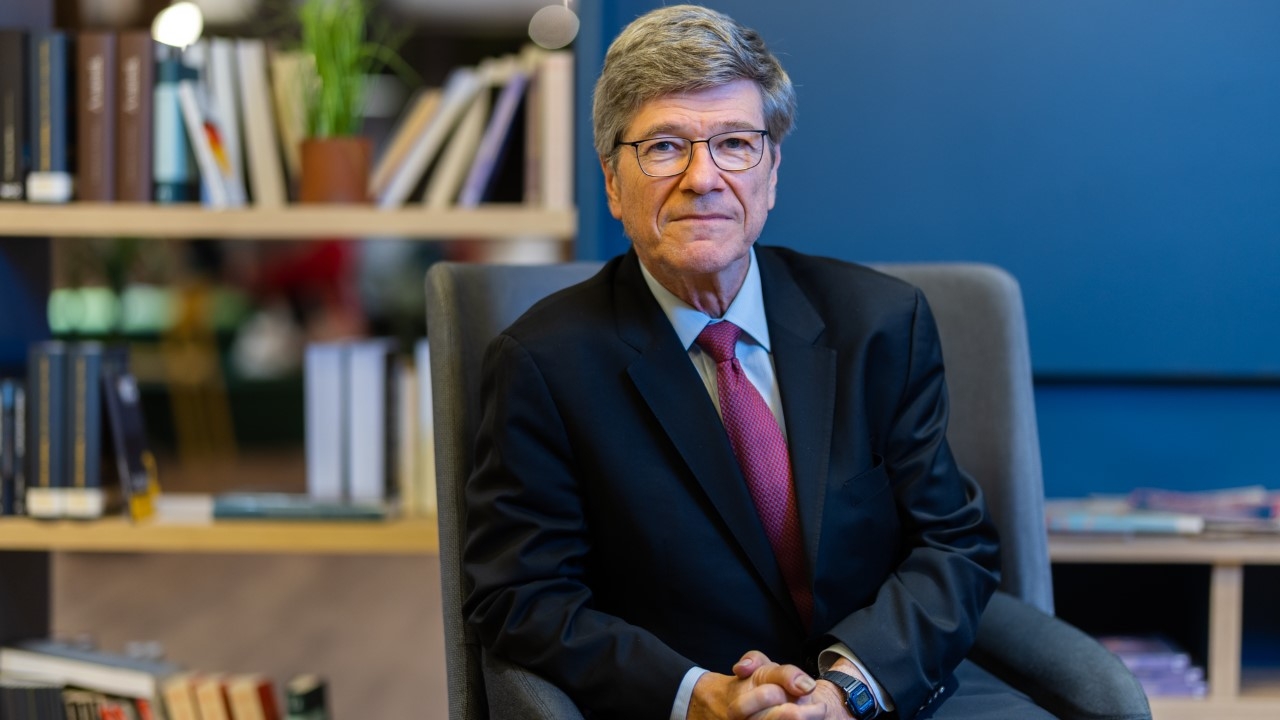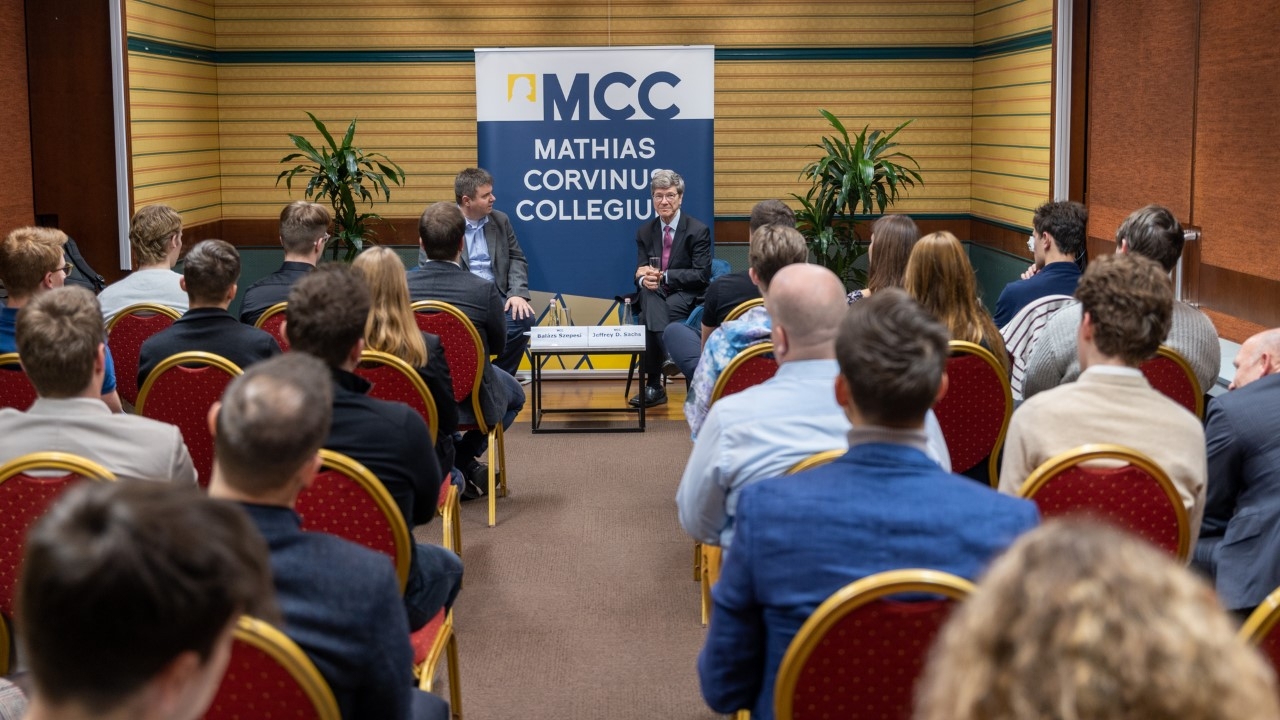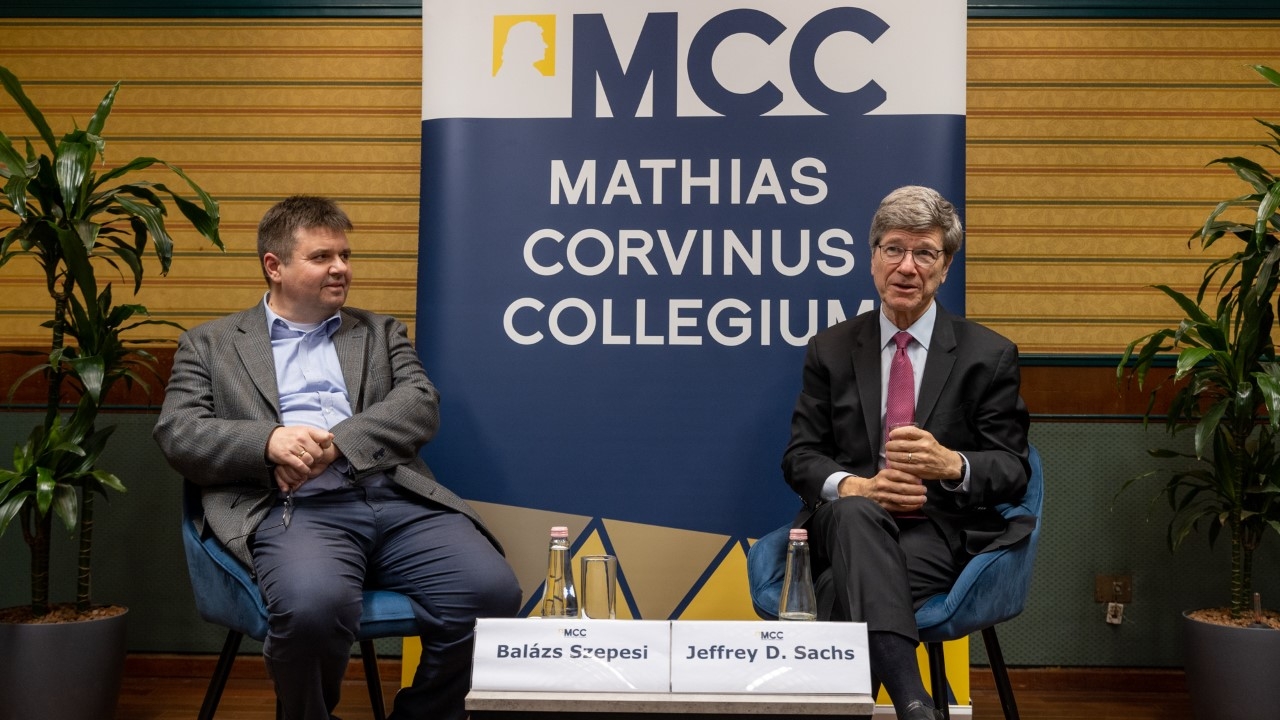Reading time: 3 minutes
World-renowned economist and economic policy advisor Jeffrey Sachs visited Mathias Corvinus Collegium (MCC), where he discussed his life's work with Balázs Szepesi, head of the MCC School of Economics.
In reviewing the nature of economic crises, the professor pointed out that it is not only a sudden collapse in demand that can cause trouble in the economy. The 2008 crisis, for example, was caused by a panic triggered by misguided economic policies. As for the current crisis, it is a combination of problems on the production side. The epidemic and the war have brought many factories to a standstill, disrupted world logistics, and, fighting and embargoes have led to the loss of many products from the market. Each crisis requires a different approach. In the current one, the economy should be restored to normal as soon as possible.
Professor Sachs is one of the key figures of regime change in Central Europe. He told how the program of Poland's extremely rapid marketisation in exchange for the cancellation of a large part of its debt was put together overnight in Warsaw. Within two years, the program had set the country on a successful path that continues to this day. The professor said that when a similar plan was devised in Russia, the US balked at debt forgiveness. Russia was seen as an enemy, and the US was unwilling to help it strengthen its economy.
When asked about the nature of capitalism, the professor cited Adam Smith's invisible hand to show that the market can improve productivity and innovation in the long run. He also pointed out that the market does not create the conditions for itself to function. There is no guarantee that inequalities will be eliminated in the distribution of the wealth produced. This is why it is necessary to ensure that the conditions are in place at both national and global level to guarantee proper functioning.
The lack of such guarantees also played a major role in the outbreak of the war, the professor stressed. The United States, with its focus on geopolitical dominance, deliberately dismissed Russia's security needs. Putin started this brutal war, but US policy, aware of the possible consequences, deliberately took it too far. As the responsibility for starting the war is shared, so is the responsibility for ending it. It may cost many lives, destruction, trillions of dollars worldwide, to realize that neither side can win on the battlefield. It would be better for everyone to conclude a peace agreement, which was almost reached last March.
Professor Sachs said he was under no illusion that global problems could be solved. Global warming, poverty, which is the fate of many countries, and war cost far more than it would cost to avert these disasters. It is not a big task to see this. The real challenge is to trust each other, to believe in one of the basic tenets of economics: cooperation is a positive sum game, and everyone is better off than in the zero-sum games of dominance struggles. The EU and the US account for a tenth of the world's population. It is worth accepting that the prosperity of the other ninety per cent will bring us greater prosperity.


